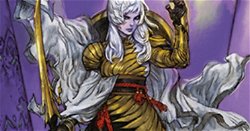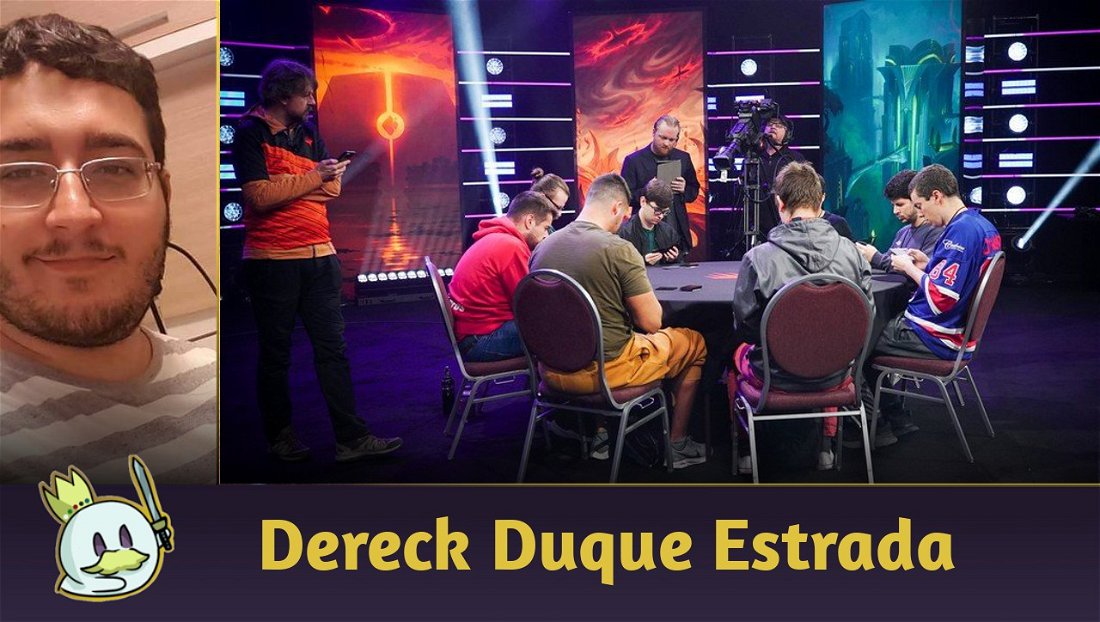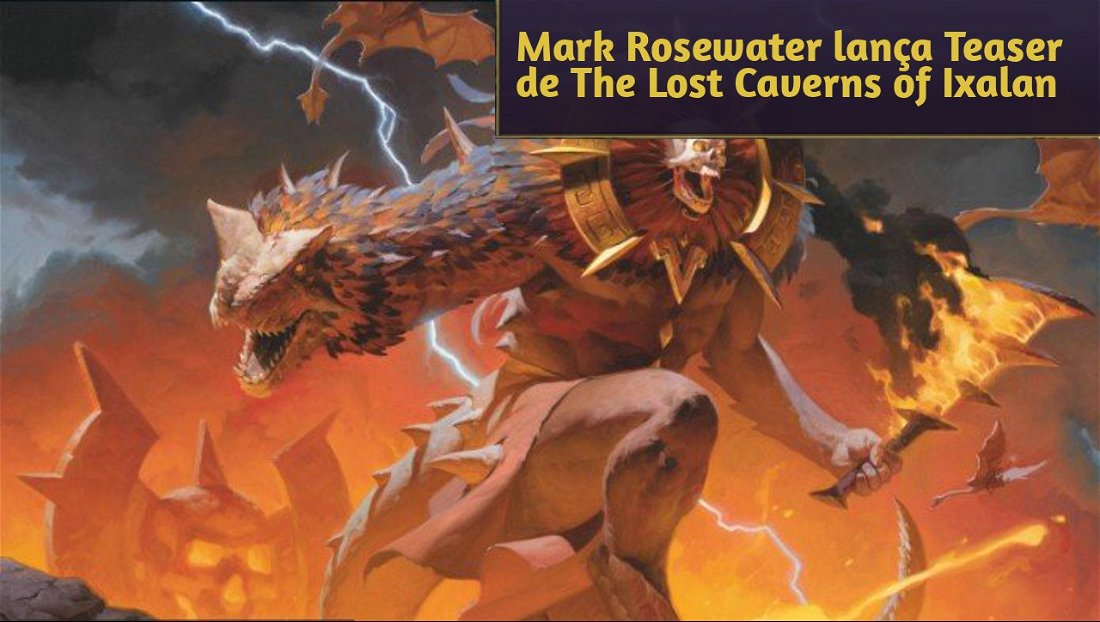The release of Wilds of Eldraine changed the Pioneer's tiers and put decks like Izzet Phoenix, Boros Heroic and Convoke on the radar, and the format continues to adapt and, in the process, the space for innovation continues to grow.
For the last month, I've been ostensibly testing an archetype that I've wanted to make work since the format's first week. With some specific changes to the Metagame and a card pool to deal with specific archetypes, Azorius Flash seems like a viable option for those who want to play with high-quality cards in the most flexible way.
In this article, I delve deeper into my picks for the list, and how to run this deck.
The Decklist
Numbers and slots change frequently, but this is the list I've played over the past two weeks.
This archetype works as if Azorius Control and Dimir Rogues had a child - while our shell consists of the majority of cards present in blue and white decks, including some classic winconditions, the insertion of more creatures allows us to take a more proactive stance, in addition to alternating our pace during the game.
This, however, comes with a price: Azorius Flash cannot hold the game indefinitely, which means needing to speed up our clock at a certain point to avoid wear and tear. In this sense, we are in the middle ground between a Tempo and Midrange archetype, where we can play on top with efficient pressure, while we have some valuable engines to keep up with the pace during more turns.
Maindeck

Our creatures package.
Faerie Mastermind is the reason why Azorius Flash is a viable option today. With the Metagame more focused on draw effects due to the rise of Izzet Phoenix and Boros Heroic, Yuta Takahashi's card gains new valid options in the Pioneer Metagame to provide "extra draws". Mastermind is also a useful second-turn clock and, in a worst-case scenario, a useful blocker against Aggro.
Brazen Borrower is excellent for our Tempo plays. Its bounce gives our counterspells a new chance, while a 3/1 body with flying guarantees considerable pressure if we hold the match for several turns.
Spell Queller is one of the more questionable options on the list. On the one hand, it is excellent at establishing pressure while delaying the opponent's turn. On the other, its inclusion prevents us from playing sweepers like Supreme Verdict and, being a common target for removals, it is also not as efficient a counterspell as Absorb.
Eldritch Moon's spirit shines in games where interaction is scarce, or when you have enough resources and mana to protect it against removal. It is also an excellent card for sequencing multiple copies, as each one reduces the number of turns the opponent has to deal with the problems you put on the board.
Shark Typhoon is not exactly a creature, but it will be used 90% of the time with its cycling ability to put a giant shark into play. As we have fewer high-cost spells, casting it means making certain bets with your hand, instead of guaranteeing even greater pressure. It is useful as an enchantment in games where removals are abundant, while using it at Instant-Speed to create tokens is a more efficient option in other games.

Our value package.
The Wandering Emperor is the other reason this deck exists: threat, removal, pump, it works like everything this archetype wants. Four copies is a lot, two copies are not enough. I believe that, with three of them, we can sequence good turns even if we are stuck with two of them in hand.
Teferi, Hero of Dominaria gained his space as Midrange games demonstrated difficulty in dealing with him and our other cards simultaneously. The extra draw is just as useful here as it is in Azorius Control, and its use as a removal and finisher makes it a very flexible option. Two copies seems like the right number, since five mana is still a high value for an archetype that wants to make two plays every turn cycle,
And to complement this package and not force us to play with more high-cost cards, Reckoner Bankbuster is the perfect second turn play, which gives us the security of playing around what the opponent does without losing too many resources. From the fourth turn onwards, it makes the opponent's plans quite difficult by ensuring that we have an extra draw and, in the end, it still works as a complementary threat.

Our counterspell package is relatively small, with six copies in the maindeck. I would like to have two more main copies of Dovin's Veto, but there aren't enough slots without making concessions in the list. So, they enter the Sideboard.

Our removals package. We can change some numbers to diversify it (removing a March to add another Settle the Wreckage, or even Declaration in Stone are valid options), but I like the idea of having six to eight board interactions, accompanied by The Wandering Emperor and Brazen Borrower.
March of Otherworldly Light is a decent option in a Metagame where low-cost creatures exist. Additionally, it is a maindeck answer against Witch's Oven.
Fateful Absence is the best Instant-Speed white removal against any creature or Planeswalker right now. Two copies are needed to deal with threats that we don't want the opponent to untap with.
Finally, Settle the Wreckage is the best sweeper for this list, as it can be cast at Instant-Speed and doesn't remove your creatures in the process. A prudent opponent can play around it, but in games where it matters, it's natural that they need to attack with everything every turn to not give us enough time to recover.

Our manabase follows the pattern of what we expect from Azorius decks. As we have some heavy color requirements, the inclusion of Mutavault, while interesting, seems risky and not very beneficial. Our only source of colorless mana, Geier Reach Sanitarium, interacts well with Faerie Mastermind, and helps us filter our hand when the game stretches.
Sideboard

Our extra counterspells package.
Dovin's Veto is Pioneer's best counter today, and one that doesn't guarantee good response windows for the opponent. It is one of the cards that most often appear in post-sideboard games and, depending on Metagame, deserves even more space in the maindeck.
Disdainful Stroke is the "necessary evil" against Mono Green Devotion and the Goodstuff lists, which once again have space in the format due to Up the Beanstalk. It also serves to answer Sheoldred, the Apocalypse and Delve spells.
Mystical Dispute could deserve another copy on Sideboard now that Izzet Phoenix is on the rise. But the number of occasions where it becomes redundant is high, and therefore we limit its space to one copy.
Narset's Reversal is a specific tech for certain matchups against Delve spells, or to respond to problematic spells, typically coming from Lotus Combo, such as Thought Distortion.

Our removals and sweepers package.
Declaration in Stone has gained space on my list lately due to the rise of Izzet Phoenix, as this is one of the few efficient ways we have of dealing with multiple copies of Arclight Phoenix with a single card. In addition, the spell also works to deal with the tokens created by Gleeful Demolition and as a one-off removal against larger threats.
Temporary Lockdown is our basic sweeper that most of our creatures dodge. It is essential against Boros Prowess, Humans, Convoke, Rakdos Sacrifice and any other archetype that aims to fill the board with low-cost permanents.
The second copy of Settle the Wreckage can be any sweeper of your choice, from Supreme Verdict to Farewell, or a third copy of Temporary Lockdown. I chose Settle the Wreckage as it is the most comprehensive option that interacts with our strategy.

Rest in Peace is our mandatory graveyard hate. A third copy can be included in place of Elspeth, Sun's Champion if your Metagame requires it. Unlicensed Hearse is another decent option for this slot, but easier to answer with the usual answers from decks with red.
Pithing Needle, as a one-of, serves to "lock" certain unwanted pieces. The most common targets are Karn, the Great Creator, Witch's Oven, Teferi, Hero of Dominaria, and Thespian's Stage. The second copy is necessary if Lotus Combo grows in numbers again.
Elspeth, Sun's Champion is an unusual option, but it works in a considerable range of matchups in the current format: against Rakdos Midrange, she is excellent if she lands on the board and survives a turn, and her ability to destroy all creatures with four or more power makes her a viable option against other Midrange decks, and even an average Sideboard option against Mono Green Devotion on the draw, since we don't have a fast enough clock to play under them, like Spirits.
Why play Azorius Flash?
As this archetype is not a huge competitor, the most honest answer is: you like playing Azorius Control, but you hate very long games. Azorius Flash also has all the tools to compete in the current Metagame - the quality of cards in 
Another notable advantage of playing with this list is that your opponent doesn't know how to behave against it. It is not uncommon for them to confuse your proposal with a poor early-game from Spirits, or with the traditional sequencing of Azorius Control, only to be surprised with a Spell Queller or Faerie Mastermind. From this, our knowledge about the Metagame and the matches makes a huge difference, as we need to capitalize on this 'unknown' factor.
Finally, because it plays almost everything on the opponent's turn, changing routes with this deck is easy: does it need to be more control? Focus on using the cards in your sideboard for a more traditional game plan. Do you need a clock? Remove higher-cost cards and include counterspells and cheap removals to punish your opponent.
The biggest problem, however, is knowing how to interpret each match and the stance we should take at each turn. Just like a Delver list in Legacy, Azorius Flash changes its stance in almost every play. Extracting all the value from the list is so difficult that a wrong sequencing, or a counterspell in a turn where it would be better to play a creature at the end of the turn, or the opposite, can be very costly.
Sideboard Guide
Rakdos Midrange
IN

OUT

Mono Green Devotion
On Play:
IN

OUT

In Draw:
IN

OUT

Rakdos Sacrifice
IN

OUT

Izzet Phoenix
IN

OUT

Mono White Humans
IN

OUT

Lotus Combo
IN

OUT

Boros Heroic
IN

OUT

Boros Convoke
IN

OUT

Azorius Control
IN

OUT

Bring to Light
IN

OUT

Conclusion
That's all for today.
If you have any questions or suggestions, feel free to leave a comment below!
Thanks for reading!















— Commenti 0
, Reazioni 1
Diventa il primo a commentare